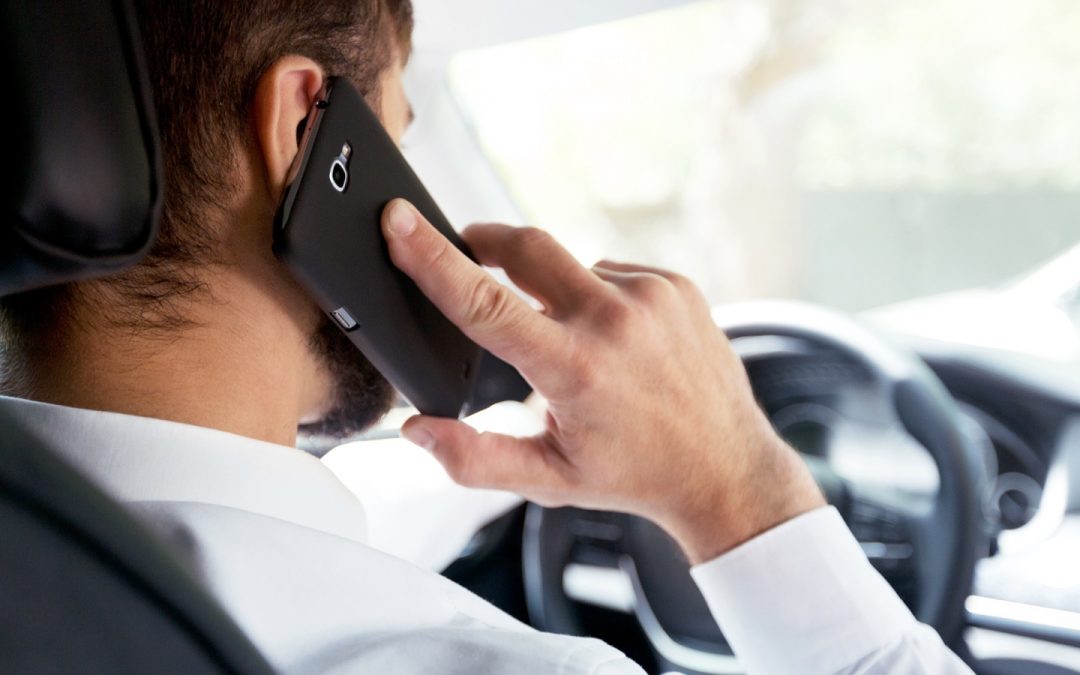From answering your phone to tending to children to trying to find that stick of gum, drivers can be easily distracted—and distracted driving is a leading cause of accidents. Even focusing on something outside off the road can distract a driver. For example, rubbernecking (the act of slowing down to look at another accident) causes congestion and other accidents.
What is distracted driving?
A driver becomes distracted when doing anything that takes their attention from driving and/or takes their eyes off the road, like adjusting the entertainment system, eating food, or texting. If you take your eyes off the road for five seconds while driving at fifty-five mph, it’s like traveling a city block with your eyes closed. The Auto Alliance, a manufacturer’s alliance in the United States, recommends drivers not take their eyes off the road for over two seconds at a time. Anything above that two-second limit doubles the risk of getting into an accident.
Distracted driving statistics
The numbers on accidents and fatalities around the world prove that distracted driving is a killer.
- Inattentiveness behind the wheel is a factor in 80 percent of collisions and 65 percent of near collisions.
- One person is injured in a distracted driving accident every half hour.
- Economic losses due to distracted driving are over $10 billion annually.
Auto collisions due to mobile phones
Though illegal for ten years and more, using cell phones is one of North America’s top causes of auto accidents. Cell phones affect your reaction times and may cause you to miss a dangerous situation in the first place. The statistics are sobering:
- Younger drivers use their cell phones while driving more than any other age group.
- Over 45 percent of drivers aged twenty-five to thirty-four say they’ve made or received calls while driving.
- Over 35 percent of that same age group have sent text messages, social posts, or emails while driving.
- Cell phone use can increase your chances of getting into an accident by four times.
- Texting while driving increases your likelihood of crashing by six times more when under the influence of alcohol and makes reaction times 30 percent slower than a person at the drinking and driving limit.
- The National Safety Council says cell phone use contributes to 1.6 million crashes per year in the United States.
Mobile use and young people
Teen drivers are especially prone to using cell phones while driving, and it’s taking a real toll:
- Approximately eleven teens die every day due to cell phone use while driving in the United States.
- People aged sixteen to twenty-four are most likely to use their cell phones while driving.
- Of those teen drivers involved in fatal accidents, 21 percent were distracted by their cell phones.
How to reduce distracted driving
Though most drivers are dedicated to road safety, many may need to learn how quickly they can become distracted. Education is the key to helping drivers stay safe. One major priority should be educating teens about the dangers of cell phone use while driving and increasing enforcement as a deterrent. Some insurance companies won’t honour an insurance policy if a driver under twenty-five was found to be using their cell phone while driving.
On a personal level, if you need to do something other than drive, it’s safest to pull over, perform the action and then, once your full attention can go back to the road, continue on your way. Put your make-up on at home, be late to work, and arrive alive.
Remember that texting while driving is a killer, so leave that phone in your glove compartment or well out of reach so you won’t be tempted! Bear in mind, also, that even hands-free talking can affect a driver’s reaction times.
Simplicity Car Care can help
Simplicity Car Care’s collision appraisal center deals with car accidents and can handle any car repair. And after dealing with your appraisal and police report, Simplicity will do the car repairs, including bodywork, and get you back on the road faster! Contact Simplicity Car Care now to book your car repair appointment.


Recent Comments